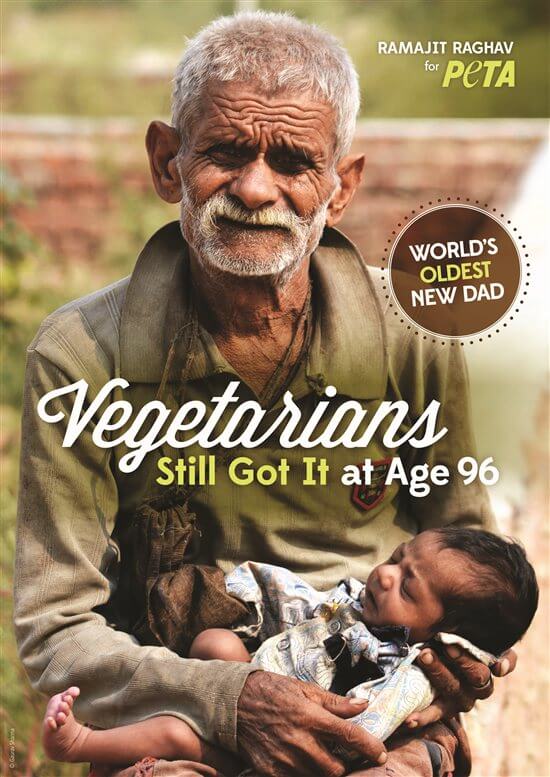What the world needs is young dads
An article in the Journal of Medical Ethics questions the ethics of older fatherhood

A couple of years ago, PETA, the radical animal welfare organization, developed a marketing campaign around a 96-year-old Indian man named Ramajit Raghav who had just entered the Guinness Book of World Records as the world’s oldest father.
However, an article in the Journal of Medical Ethics questions the ethics of Mr Raghav’s paternity. Dr Kevin R Smith, of Aberdeen University, in Scotland, points out that the older the father, the higher the rate of birth defects. With more and more men choosing to marry and have children later in life, additional disabled children could eventually lead to a significant burden on the economy and might even decrease the evolutionary fitness of the human race. This makes the age of paternity a serious ethical problem, he says.
He proposes four solutions: health education to promote earlier fatherhood, incentives for young sperm donors and state-supported universal sperm banking, and eventually human germline modification (ie, eugenics). Dr Smith favours sperm banking. He envisages a society in which 18-year-olds will be asked to bank their sperm in preparation for future fatherhood via artificial insemination.
Ideally, therefore, sperm could be taken (on a voluntary basis) from all young men, with AI becoming the norm for procreation. To be successful this would require state-funded infrastructure support, along with educational/publicity approaches to encourage young men to participate. If this form of society-wide sperm banking were to be widely adopted, and repeated throughout successive generations, it would have marked benefits for the human gene pool over the long term. This approach may appear radical or intuitively unwelcome to some, in that it would entail a wholescale move away from natural conception. However, a societal shift of this kind does not seem to be open to serious objection on ethical grounds.
As well, society should curb procreation by men who are over 40. “This approach, if successful, would undoubtedly have benefits in terms of maximising health and reducing mutational burden.”
https://www.bioedge.org/images/2008images/TH_oldest_dad.jpg
Creative commons
fatherhood
IVF
reproductive revolution
sperm banks
- How long can you put off seeing the doctor because of lockdowns? - December 3, 2021
- House of Lords debates assisted suicide—again - October 28, 2021
- Spanish government tries to restrict conscientious objection - October 28, 2021
